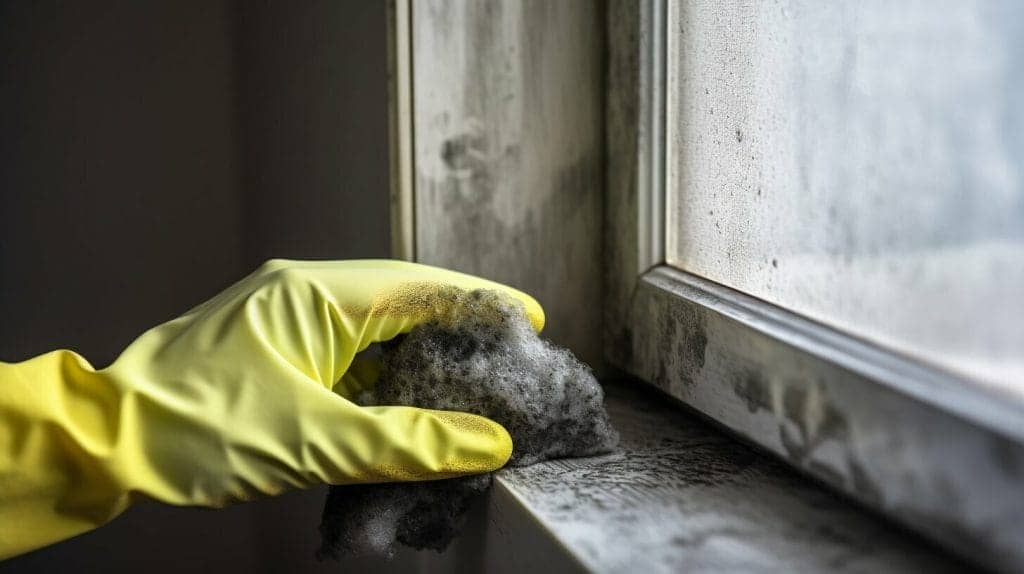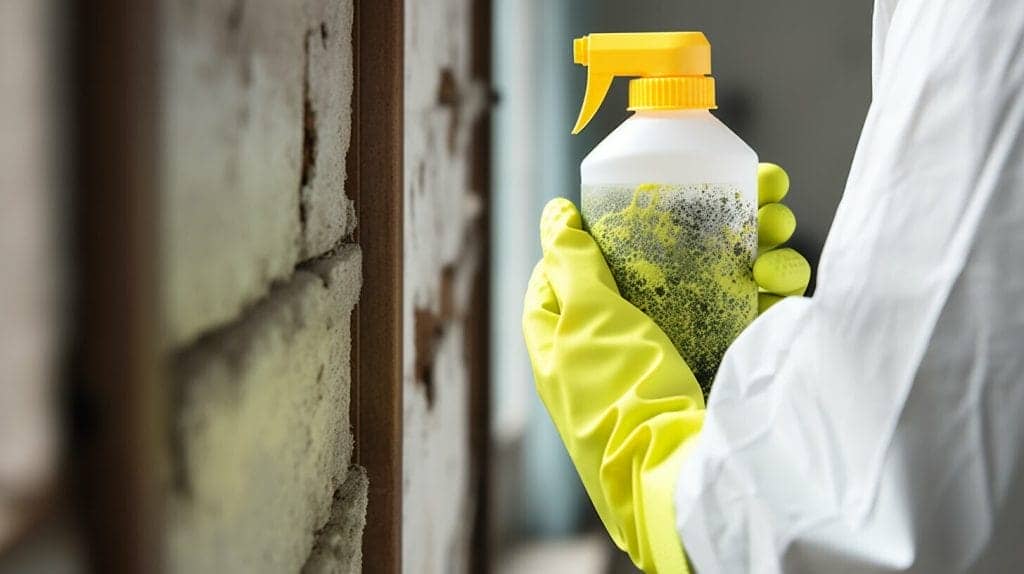Welcome to our article about the potential link between mold toxicity and leptin resistance. You may have heard about mold toxicity and its negative effects on health, but did you know that it could also impact the hormone leptin? Leptin is responsible for regulating appetite and body weight, so any disruption to its function can have serious consequences. In this article, we’ll provide an in-depth examination of the relationship between mold toxicity and leptin resistance.
First, we’ll define what mold toxicity is and what leptin resistance means, and then explore the possible impact that mold toxicity can have on the hormone. We’ll also discuss the symptoms of these conditions, how they are diagnosed, and the various treatments available. Lastly, we’ll touch on how mold toxicity and leptin resistance may be linked to chronic illnesses, and answer some frequently asked questions about the topic. So, let’s dive in and learn more about whether does mold toxicity cause leptin resistance.
Understanding Mold Toxicity and Leptin Resistance
When mold is present in the environment, it can release toxins that can be harmful to humans. Exposure to these toxins can lead to a variety of symptoms and health issues, including a potential impact on the hormone leptin.
Leptin is a hormone that regulates appetite and body weight. When functioning properly, it signals the brain to reduce hunger and increase metabolism. However, when the body becomes resistant to leptin, the brain does not receive these signals and hunger and metabolism are not properly regulated. This can lead to weight gain and obesity, as well as other health issues.
Research has shown that exposure to mold toxins can lead to leptin resistance. This occurs when the toxins interfere with the function of the hormone, causing the body to become resistant to its effects. In addition, mold exposure can also lead to other health issues that can exacerbate the effects of leptin resistance.
How Mold Toxicity Affects the Body
Mold toxicity can affect the body in a variety of ways. Exposure to mold toxins can lead to respiratory issues, such as coughing, wheezing, and asthma. It can also cause skin irritation, eye irritation, and headaches.
In addition to these immediate symptoms, mold toxicity can have long-term effects on the body. Exposure to mold toxins has been linked to a variety of chronic illnesses, including autoimmune disorders, neurological issues, and cancer.
How Leptin Resistance Develops
Leptin resistance can develop for a variety of reasons. One common cause is obesity, as excess fat cells can interfere with the body’s ability to properly regulate leptin. In addition, a diet high in processed foods and sugar can also contribute to leptin resistance.
Exposure to mold toxins can also lead to leptin resistance. The toxins can interfere with the function of leptin, causing the body to become resistant to its effects. This can lead to weight gain and other health issues associated with leptin resistance.
The Connection Between Mold Toxicity and Leptin Resistance
Research has shown a clear connection between mold toxicity and leptin resistance. Exposure to mold toxins can interfere with the function of leptin, leading to resistance. In addition, mold exposure can also contribute to other health issues that can exacerbate the effects of leptin resistance. This highlights the importance of reducing mold exposure and maintaining a healthy environment.
Symptoms of Mold Toxicity and Leptin Resistance
Mold toxicity and leptin resistance can both manifest in a variety of symptoms. While some of these symptoms may be similar, there are some key differences between the two conditions.
Common symptoms of mold toxicity include:
- Headaches
- Fatigue
- Difficulty concentrating
- Memory loss
- Joint pain
- Muscle weakness
- Shortness of breath
- Respiratory problems
- Digestive issues
- Skin irritation
Leptin resistance, on the other hand, can lead to a range of symptoms related to appetite and weight regulation, including:
- Increased appetite
- Cravings for sweet or fatty foods
- Difficulty losing weight
- Weight gain
- Insulin resistance
- High blood pressure
- High cholesterol
In some cases, mold toxicity can lead to leptin resistance, which can compound these symptoms and make them more difficult to manage.
How Mold Toxicity Affects Leptin Hormone
Mold toxicity can have a direct impact on the hormone leptin, which regulates appetite and body weight. Exposure to mold can lead to inflammation in the body, which can cause leptin resistance. When the body is resistant to leptin, it can no longer effectively regulate appetite, which can lead to overeating and weight gain.
In addition to causing leptin resistance, mold toxicity can also impact other hormones that play a role in weight regulation, such as insulin and cortisol. This can further complicate weight management and lead to a range of other health problems.
Preventing Mold Toxicity and Leptin Resistance
Mold toxicity and leptin resistance can have a significant impact on your overall health and well-being. However, there are steps you can take to reduce your risk and prevent these conditions from developing.
Reduce mold exposure
Mold thrives in moist environments, so it’s essential to keep your home clean and dry. Fix any leaks or water damage promptly, and use a dehumidifier to keep humidity levels below 60%. Clean and dry any wet or damp materials within 24-48 hours to prevent mold growth.
Avoid known sources of mold
Some common sources of mold include old or damaged carpets, wallpaper, and ceiling tiles. Avoid using carpeting in damp or humid areas, and replace any damaged materials as soon as possible.
Maintain a healthy environment
Avoid smoking indoors, and ensure your home is properly ventilated. Open windows and use exhaust fans to improve airflow throughout your home. Use high-quality air filters to remove mold spores and other contaminants from the air.
Make lifestyle changes
Maintaining a healthy diet and exercising regularly can help reduce the risk of leptin resistance. Focus on eating whole, nutrient-dense foods, and avoid processed or high-sugar foods. Incorporate regular exercise into your daily routine, such as walking, yoga, or strength training.
| Tip: | Regularly cleaning your home can help reduce the risk of mold growth. Use a HEPA filter vacuum, and clean surfaces with a mixture of white vinegar and water to prevent the growth of mold and mildew. |
|---|
Diagnosing Mold Toxicity and Leptin Resistance
Diagnosing mold toxicity and leptin resistance can be challenging, as the symptoms can be similar to those of other health conditions. However, there are some tests and assessments that can help determine whether you are suffering from these conditions.
Diagnosing Mold Toxicity
If you suspect that you have mold toxicity, your doctor may recommend the following tests:
| Test | Purpose |
|---|---|
| Blood tests | To detect the presence of antibodies to mold in your blood |
| Urine tests | To detect the presence of mycotoxins in your body |
| Visual contrast sensitivity test | To check your eyes’ ability to distinguish between different shades of gray, which can be affected by mold toxicity |
It is important to note that these tests are not definitive and may not necessarily confirm the presence of mold toxicity. Your doctor may also take into account your symptoms, medical history, and any exposure to mold.
Diagnosing Leptin Resistance
If you suspect that you have leptin resistance, your doctor may recommend the following tests:
| Test | Purpose |
|---|---|
| Blood tests | To measure the levels of leptin and other hormones in your blood |
| Glucose tolerance test | To measure your body’s ability to process glucose, which can be affected by leptin resistance |
| Insulin tolerance test | To measure your body’s response to insulin, which can also be affected by leptin resistance |
Again, these tests may not necessarily confirm the presence of leptin resistance, and your doctor may also take into account your symptoms, medical history, and other factors.
Treating Mold Toxicity and Leptin Resistance
Effective treatment for mold toxicity and leptin resistance involves a multidisciplinary approach. Depending on the severity of the symptoms, medical interventions may be necessary alongside lifestyle changes to manage these conditions. Here are some treatment options for mold toxicity and leptin resistance:
Medical Interventions
If you have been diagnosed with mold toxicity or leptin resistance, your doctor may recommend the following medical interventions:
| Medical Intervention | Description |
|---|---|
| Antifungal medication | Prescription medication that helps to kill mold in the body |
| Leptin replacement therapy | Recommended for individuals with severe leptin resistance; involves injections of synthetic leptin |
| Allergy shots | To help manage mold allergies, which can exacerbate symptoms of mold toxicity |
Lifestyle Changes
Lifestyle changes can also help manage symptoms of mold toxicity and leptin resistance. Here are some strategies:
- Reduce exposure to mold by keeping your home and workplace clean and dry, using a dehumidifier, and fixing any leaks promptly
- Follow a healthy diet rich in whole foods, fiber, and lean protein to help regulate leptin levels
- Engage in regular physical activity, such as brisk walking or yoga, to help control weight and improve overall health
- Practice stress-relief techniques, such as meditation or deep breathing exercises, as stress can impact leptin levels
Managing Symptoms
While treatment for mold toxicity and leptin resistance is ongoing, there are ways to manage symptoms and improve overall health. Some strategies include:
- Getting plenty of restful sleep each night to support the body’s natural healing processes
- Drinking plenty of water to flush toxins from the body
- Reducing exposure to other environmental toxins, such as cigarette smoke or air pollution
- Taking nutritional supplements to support overall health and immune function
Remember, treatment for mold toxicity and leptin resistance is unique to each individual. Consult with your doctor and healthcare team to determine the best course of action.
The Emotional and Physical Impact of Living with Mold Toxicity and Leptin Resistance
Living with mold toxicity and leptin resistance can be challenging, both emotionally and physically. Symptoms of mold toxicity can include fatigue, headaches, and respiratory issues, while leptin resistance can cause weight gain, fatigue, and difficulty regulating hunger and appetite. Coping with these conditions can be overwhelming, but there are steps you can take to manage symptoms and improve your overall well-being.
One of the most important things you can do is to maintain a healthy lifestyle. This includes eating a balanced diet with plenty of fruits and vegetables, getting regular exercise, and staying hydrated. You should also prioritize rest and relaxation, and make time for activities that bring you joy and help you feel centered.
It can also be helpful to seek out support from others who are going through similar experiences. Online support groups and forums can provide a sense of community and connection, while therapy or counseling can offer a safe space to explore your feelings and develop coping strategies.
Living with mold toxicity and leptin resistance can be challenging, but it’s important to remember that you are not alone. With the right support and resources, you can manage your symptoms and improve your overall health and well-being.
The Link Between Mold Toxicity, Leptin Resistance, and Chronic Illnesses
Recent research has indicated that mold toxicity and leptin resistance can have a significant impact on overall health and may increase the risk of developing chronic illnesses in the long-term.
Studies have found that exposure to mold can contribute to the development of a variety of chronic illnesses, including asthma, allergies, and respiratory infections. Mold exposure has also been linked to the development of autoimmune disorders and neurological conditions such as Parkinson’s and Alzheimer’s disease.
Additionally, leptin resistance has been shown to increase the risk of developing chronic illnesses such as type 2 diabetes, heart disease, and cancer. Leptin plays a crucial role in regulating metabolism and energy balance, and when the body develops resistance to this hormone, it can contribute to the development of these and other chronic illnesses.
| Chronic Illness | Potential Association with Mold Toxicity and Leptin Resistance |
|---|---|
| Type 2 Diabetes | Mold toxicity exposure may contribute to insulin resistance, while leptin resistance interferes with insulin signaling in the body. |
| Heart Disease | Mold exposure can lead to inflammation, which can contribute to the development of heart disease, while leptin resistance has been linked to the development of hypertension and other heart-related conditions. |
| Cancer | Mold toxins have been shown to have carcinogenic effects, while leptin resistance can promote the growth and spread of cancer cells. |
Early Intervention and Treatment
Given the potential long-term impact of mold toxicity and leptin resistance on overall health, it is important to seek early intervention and treatment if these conditions are suspected. This can involve reducing exposure to mold, making lifestyle changes to promote healthy eating and exercise habits, and working with a healthcare professional to manage symptoms and prevent the development of chronic illnesses.
By taking proactive steps to address these conditions, individuals can help safeguard their health and reduce the risk of developing serious long-term health problems.
FAQs about Mold Toxicity and Leptin Resistance
Q: How do I know if I have mold toxicity?
A: Symptoms of mold toxicity can vary depending on the individual, but they may include fatigue, headaches, respiratory problems, and skin irritation. If you suspect that you have been exposed to mold and are experiencing these or other symptoms, it is important to speak with a healthcare provider to get a proper diagnosis. Your doctor may perform tests such as blood work or allergy testing to determine if mold toxicity is the cause of your symptoms.
Q: Can mold toxicity lead to long-term health problems?
A: Yes, mold toxicity can potentially lead to long-term health problems if left untreated. Exposure to mold can weaken the immune system and increase the risk of developing chronic illnesses such as asthma, COPD, and even cancer. It is important to seek medical treatment if you suspect that you have been exposed to mold to prevent the development of these and other long-term health problems.
Q: What is leptin resistance?
A: Leptin resistance is a condition in which the hormone leptin is present in the body, but the body is unable to properly respond to it. This can lead to overeating, weight gain, and obesity. Leptin resistance can be caused by a variety of factors, including genetics, diet, and exposure to toxins such as mold.
Q: How does mold exposure lead to leptin resistance?
A: Exposure to mold can disrupt the delicate balance of hormones in the body, including leptin. Mold toxins can interfere with the body’s ability to properly regulate appetite and metabolism, leading to leptin resistance. This can, in turn, lead to weight gain, inflammation, and a host of other health problems.
Q: Are there any natural remedies for mold toxicity?
A: While there are no known natural remedies that can cure mold toxicity, there are several lifestyle changes that can help reduce exposure to mold and improve overall health. These may include eating a healthy diet rich in antioxidants, maintaining a clean and dry environment, and avoiding known sources of mold. Additionally, certain supplements such as vitamin C and glutathione may be helpful in reducing the impact of mold toxicity on the body.
Q: Can leptin resistance be reversed?
A: Yes, leptin resistance can often be reversed through a combination of diet, exercise, and lifestyle changes. By reducing exposure to toxins such as mold, eating a healthy diet, and engaging in regular physical activity, individuals with leptin resistance can often improve their body’s response to leptin, leading to weight loss and improved overall health. However, in some cases, more aggressive medical interventions may be necessary to treat underlying health conditions that are contributing to leptin resistance.
Dr. Francisco Contreras, MD is a renowned integrative medical physician with over 20 years of dedicated experience in the field of integrative medicine. As the Medical Director of the Oasis of Hope Hospital in Tijuana, Mexico, he has pioneered innovative treatments and integrative approaches that have been recognized globally for the treatment of cancer, Lyme Disease, Mold Toxicity, and chronic disease using alternative treatment modalities. Dr. Contreras holds a medical degree from the Autonomous University of Mexico in Toluca, and speciality in surgical oncology from the University of Vienna in Austria.
Under his visionary leadership, the Oasis of Hope Hospital has emerged as a leading institution, renowned for its innovative treatments and patient-centric approach for treating cancer, Lyme Disease, Mold Toxicity, Long-Haul COVID, and chronic disease. The hospital, under Dr. Contreras's guidance, has successfully treated thousands of patients, many of whom traveled from different parts of the world, seeking the unique and compassionate care the institution offers.
Dr. Contreras has contributed to numerous research papers, articles, and medical journals, solidifying his expertise in the realm of integrative medicine. His commitment to patient care and evidence-based treatments has earned him a reputation for trustworthiness and excellence. Dr. Contreras is frequently invited to speak at international conferences and has been featured on CNN, WMAR2 News, KGUN9 News, Tyent USA, and various others for his groundbreaking work. His dedication to the medical community and his patients is unwavering, making him a leading authority in the field.
Contreras has authored and co-authored several books concerning integrative therapy, cancer, Lyme Disease and heart disease prevention and chronic illness, including "The Art Science of Undermining Cancer", "The Art & Science of Undermining Cancer: Strategies to Slow, Control, Reverse", "Look Younger, Live Longer: 10 Steps to Reverse Aging and Live a Vibrant Life", "The Coming Cancer Cure Your Guide to effective alternative, conventional and integrative therapies", "Hope Medicine & Healing", "Health in the 21st Century: Will Doctors Survive?", "Healthy Heart: An alternative guide to a healthy heart", “The Hope of Living Cancer Free”, “Hope Of Living Long And Well: 10 Steps to look younger, feel better, live longer” “Fighting Cancer 20 Different Ways”, "50 Critical Cancer Answers: Your Personal Battle Plan for Beating Cancer", "To Beat . . . Or Not to Beat?", and “Dismantling Cancer.”





















